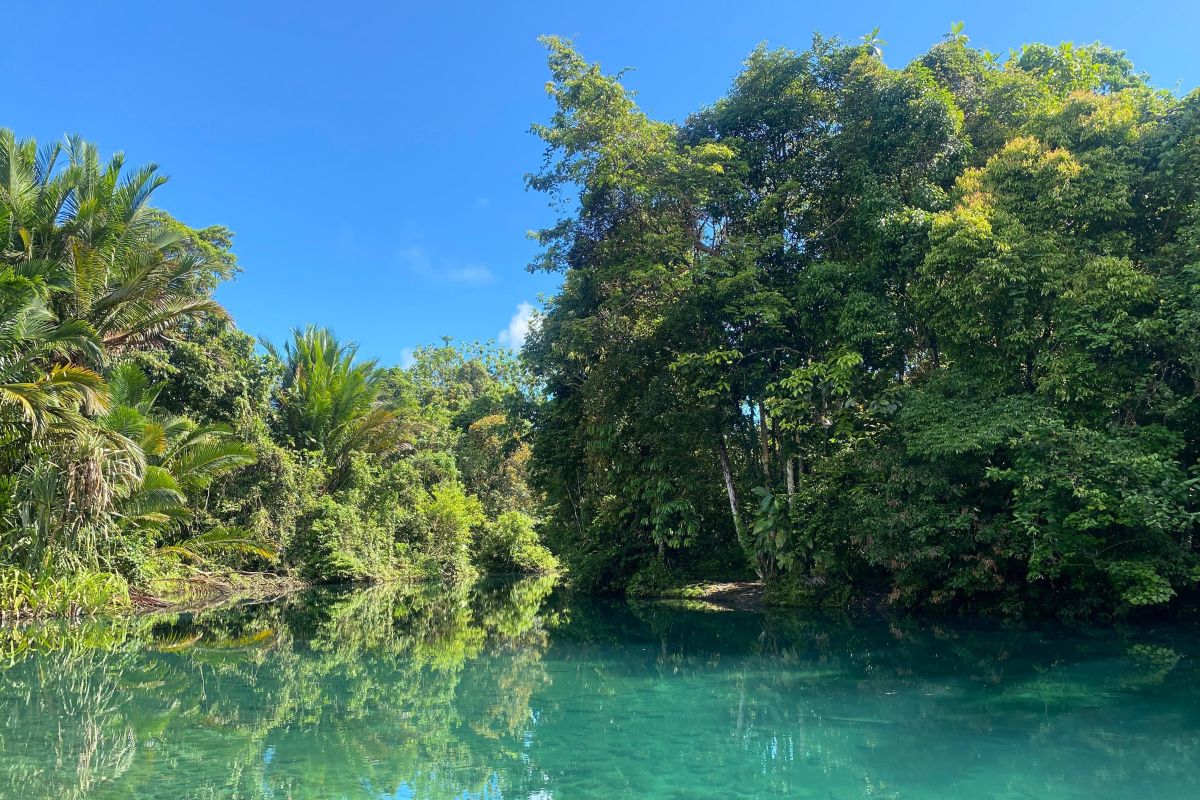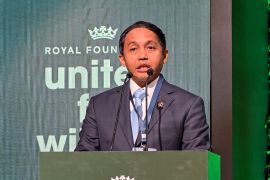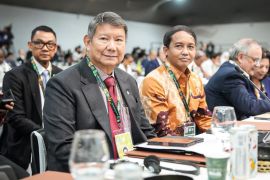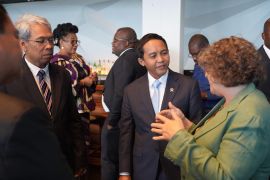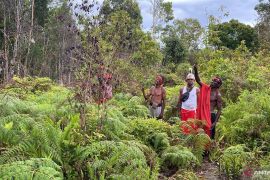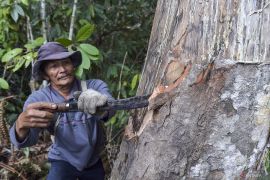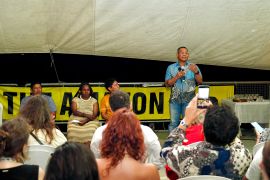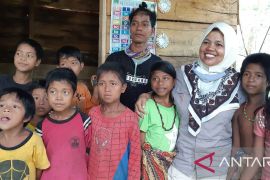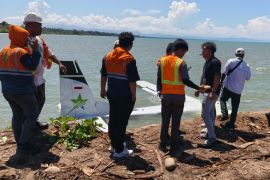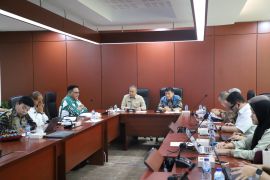This reality is well understood by the customary law community living in Konda Sub-District, South Sorong District, Southwest Papua.
Nikodemus Mondar, a member of the Nakna sub-tribe of the Tehit tribe, stated that the community fully understands that forests are a vital part of their lives.
Losing forests will have an impact on the present and the future.
"We always guard. Guarding means we cannot sell large pieces of wood or cut them down so as not to destroy the forest. In its place, there are many animals that we usually hunt for our and our families' survival," Nikodemus remarked.
The forest also shapes the identity of the local tribes - from the Nakna, Gemna, and Afsya sub-tribes, which primarily rely on forest resources, to the Yaben tribe which also uses the mangrove and water areas.
Various important places for indigenous peoples in Konda District can be found while entering its green forests with dense cover.
The rainforest reveals a rich cultural landscape in the form of places of origin, war forts, ancestral graves, sacred sites, traditional dwellings, and traditional schools.
As a source of livelihood, one will also come across sago hamlets or sago forests which are a source of food, forests for hunting and gathering, fishing spots, and springs.
Both types of locations—both as sacred areas and food sources—reflect the enduring bond between indigenous peoples and nature, which has existed since ancient times.
Sajogyo Institute researcher and Teaching Assistant in Communication Science and Community Development, Faculty of Human Ecology of IPB University, Eko Cahyono, explained that many indigenous and village communities share complex and deeply rooted connections to their ancestral lands through generations of continuous habitation.
The relationship of indigenous peoples, specifically with land and natural resources, is also complex, spanning the social, cultural, economic, ecological, and spiritual realms.
When massive forest conversion occurs, indigenous peoples will not only lose their forest areas and land where they find the food they usually consume but also their identity as a society based on customary law.
It can eliminate their culture and even their civilization which has been recorded for hundreds of years there.
Forest conservation
Forests in Papua are not only important for those residing there but also for the global community in general.
With an area of 33.12 million hectares, or 32.2 percent of Indonesia's total forest cover, data from the Geospatial Information Agency indicated that forests in Papua are an important factor in dealing with climate change.
South Sorong field coordinator of Konservasi Indonesia (KI), Raimer Helweldery, emphasized the region's unique environmental significance, noting its combination of tropical forests, mangroves, and peatlands. While these ecosystems serve as crucial carbon sinks, they can become emission sources if degraded.
According to data from Statistics Indonesia in 2019, the forest area in South Sorong reached 499,777 hectares divided into categories of protected forests, nature reserves, production forests, and other use areas.
Accompanying the Nakna and Gemna sub-tribes and the Yaben Tribe for obtaining customary forest designation, he stated that although the community utilizes wood from the forest, it is also accompanied by replanting which has also become part of the village regulations.
The community in the area also possesses local wisdom to not cut down young mangrove trees but only old and dry ones.
Although unfamiliar with the idea that the forest in their area is one of the last bastions against climate change, the local community is aware that reduced forest and mangrove cover means loss of habitat of birds, fish, and shrimp, which are their food sources.
Head of Environment, Forestry, and Land Service of Southwest Papua, Julian Kelly Kambu, recognizes the forests' vital importance for Southwest Papuans.
He advocates designating all remaining forested areas as customary forests, protecting them from conversion while empowering indigenous Papuans to manage their ancestral lands.
The wealth of forests in Papua must be accompanied by community empowerment.
Moreover, the potential of forests in Papua to store carbon means there is potential for funding, such as from special allocation funds and from the Environmental Fund Management Agency, one of which manages grant funds from the international community.
By empowering indigenous communities, the call to protect forests for the world can be implemented at the grassroots level, as it ensures that people prosper by protecting the forests and mangroves there.
The community's mindset also continues to be strengthened. The West Papua Provincial Government continues to educate people on sustainable practices, encouraging them against converting forests, promoting the preservation of trees as natural assets, and urging them to rely on non-timber forest products and other products for their livelihood.
Such community engagement involves direct dialogue with the residents, listening to their needs and aspirations.
The provincial government has also prepared a budget for Social Forestry and currently awaits the determination of six customary forests in South Sorong. A circular from the governor to the regents and mayors for Social Forestry especially focuses on the customary forest scheme.
An indigenous community empowerment program for non-timber forest products has also been prepared through cooperation with various stakeholders for its implementation.
In addition, the West Papua Provincial Government is currently preparing a work plan document to reduce greenhouse gas emissions from the Forestry and Other Land Use (FOLU) sector to achieve a carbon net sink by 2030.
West Papua has a forest area of almost four million hectares, with the potential for carbon absorption and storage still being computed.
It is hoped that with a mature work plan, the forests will be maintained while ensuring the prosperity of indigenous peoples in West Papua.
Indigenous peoples, who are the guardians of forests and mangroves, have given a gift to the world facing various impacts of climate change.
Related news: West Papua received climate change grant fund of US$1.2 million
Related news: 3.4 mln hectares palm plantations in high conservation areas: govt
Related news: Indonesia's forest, marine ecosystems crucial for region, world: Minister
Translator: Prisca Triferna Violleta, Yashinta Difa
Editor: Azis Kurmala
Copyright © ANTARA 2024
